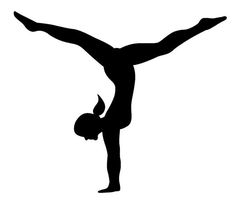
Myself. Yourself. Herself. Himself. Itself. Ourselves. Themselves. Yourselves.
What are these words and how do we use them?
They’re pronouns.
(Quick refresher: Pronouns step in for nouns. They save us lots of boring repetition.)
“Mrs. Smith baked a pie, and she shared it with her first grade class.”
Without pronouns, look what happens to this sentence:
Mrs. Smith baked a pie, and Mrs. Smith shared it with Mrs. Smith’s first grade class.
We have many pronouns in English, nine different categories:
- personal
- possessive
- relative
- interrogative
- indefinite
- demonstrative
- reciprocal
- reflexive
- intensive
Pronoun category guides pronoun use.
The pronouns ending in “self” and “selves” belong to two of those nine groups: reflexive and intensive. They’re one or the other, depending on what they’re doing in a sentence.
Today let’s focus on how they work as reflexive pronouns.
Mirrors
Reflexive pronouns mirror their subject. You can associate the word reflexive with the word mirror. Reflexive means turned back on itself.
So what does this mean when it comes to writing and using reflexive pronouns grammatically? It means a reflexive pronoun can’t be the subject of a sentence. Instead, a reflexive pronoun follows a verb or a preposition, and it must match—reflect—the subject of that verb.
She likes herself. (Herself reflects she.)
The boy poked himself in the eye. (Himself reflects boy.)
The patients are not feeling like themselves today. (Themselves reflects patients.)
The cricket emitted chirps, listening to itself as if it were another cricket. (Itselfreflects cricket.)
So how do these pronouns go wrong?
1. A common mistake occurs when a pronoun is part of a compound subject (“someone and someone else” are directing the verb):
Wrong: The girl and myself like to jump rope.
Can you tell why the reflexive pronoun myself doesn’t belong?
It has nothing to reflect.
In that sentence, the simple subject pronoun “I” is needed: The girl and Ilike to jump rope.
2. The other common mistake occurs when a reflexive pronoun follows a verb but doesn’t match—reflect—the subject:
Wrong: The team captain invited the coach and myself to a party after the game.
Remember, a reflexive pronoun has to mirror the subject of the sentence. “Myself” doesn’t mirror “team captain.”
In that sentence, the simple object pronoun “me” is needed: The team captain invited the coach and me to a party after the game.
Smoke and Mirrors
Of all the reflexive pronouns, “myself” is the one most frequently misused. The idea that “myself” sounds polite or extra proper slithered into the collective grammar-unconsciousness. This led to frequent misuse, even by reputable writers and speakers, giving it a certain unmerited validity.
Now you have a special shiny grammar tool to use. Next time you use a reflexive pronoun when you write, try the mirror test to confirm the pronoun presents the image you want to reflect.

Ellen Feld
Writing Academy Co-Instructor
Ellen Feld has worn a variety of editorial hats, including newspaper reporter and copy chief, personal essayist, website reviewer, writing coach, and creator/instructor of online grammar refresher courses, enjoyed by 43,000 students. She’s the author of the children’s storybook Paragon and Jubilee.
